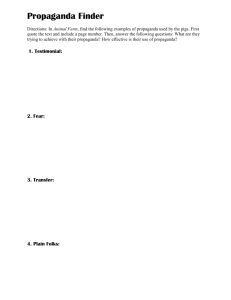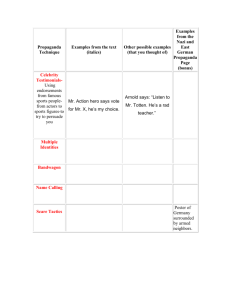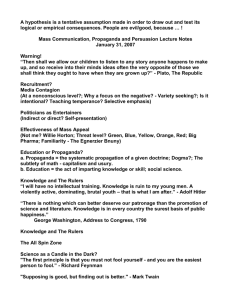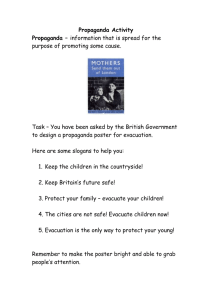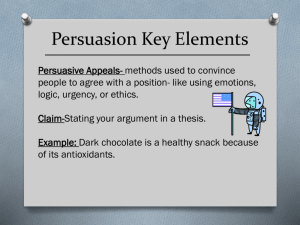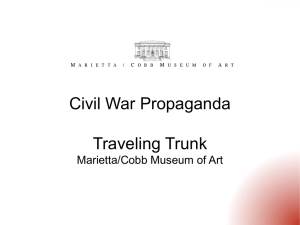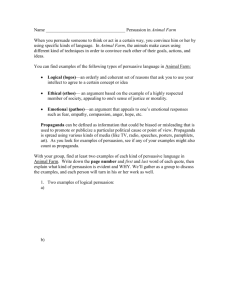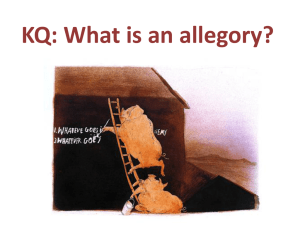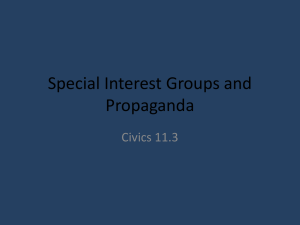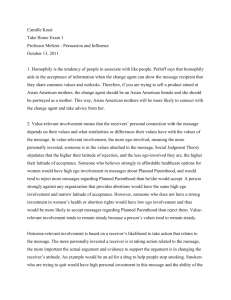Promises and Propaganda--the Power of Persuasion
advertisement
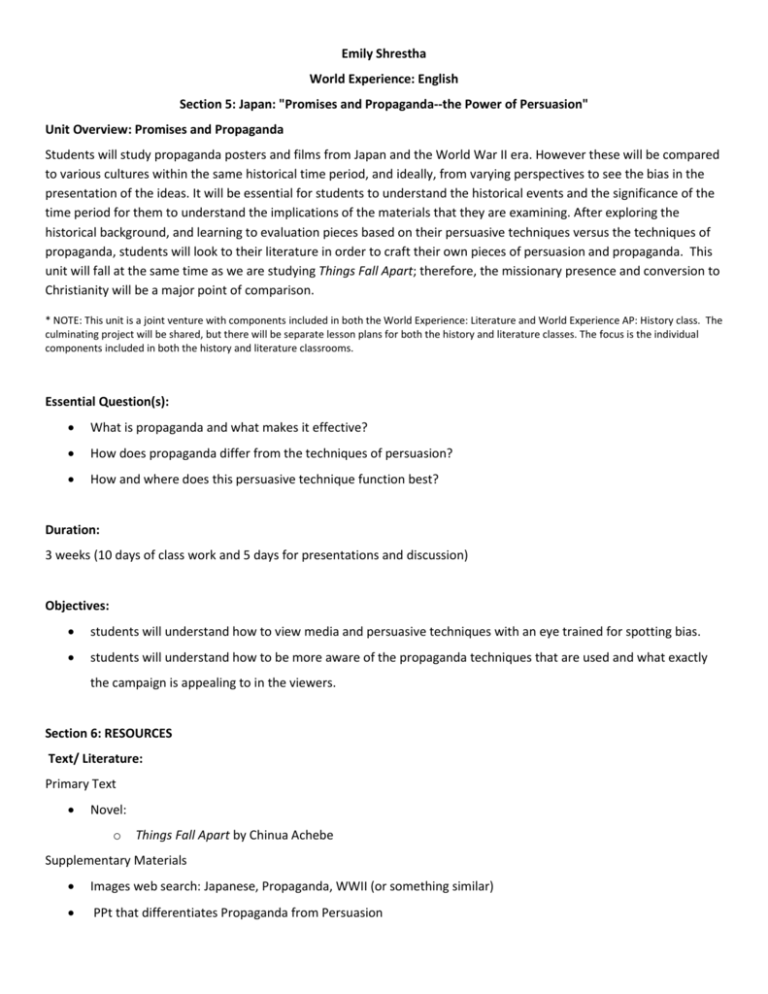
Emily Shrestha World Experience: English Section 5: Japan: "Promises and Propaganda--the Power of Persuasion" Unit Overview: Promises and Propaganda Students will study propaganda posters and films from Japan and the World War II era. However these will be compared to various cultures within the same historical time period, and ideally, from varying perspectives to see the bias in the presentation of the ideas. It will be essential for students to understand the historical events and the significance of the time period for them to understand the implications of the materials that they are examining. After exploring the historical background, and learning to evaluation pieces based on their persuasive techniques versus the techniques of propaganda, students will look to their literature in order to craft their own pieces of persuasion and propaganda. This unit will fall at the same time as we are studying Things Fall Apart; therefore, the missionary presence and conversion to Christianity will be a major point of comparison. * NOTE: This unit is a joint venture with components included in both the World Experience: Literature and World Experience AP: History class. The culminating project will be shared, but there will be separate lesson plans for both the history and literature classes. The focus is the individual components included in both the history and literature classrooms. Essential Question(s): What is propaganda and what makes it effective? How does propaganda differ from the techniques of persuasion? How and where does this persuasive technique function best? Duration: 3 weeks (10 days of class work and 5 days for presentations and discussion) Objectives: students will understand how to view media and persuasive techniques with an eye trained for spotting bias. students will understand how to be more aware of the propaganda techniques that are used and what exactly the campaign is appealing to in the viewers. Section 6: RESOURCES Text/ Literature: Primary Text Novel: o Things Fall Apart by Chinua Achebe Supplementary Materials Images web search: Japanese, Propaganda, WWII (or something similar) PPt that differentiates Propaganda from Persuasion Formative Assessment(s): small group- research checks individual- graded discussion Summative Assessment: Students will work in small groups (4 max) to prepare and present propaganda and persuasion on either side of a topic from the literature we are studying (Example: After reading Oedipus and Antigone, one student will take the perspective of Antigone, who wants to honorably bury her brother; another student will present the side of Creon, who wants to leave him unburied). In a speech, students will present their case to the class in two forms: the first, a presentation of propaganda for their side of the topic and the second, a persuasive presentation for their side of the topic. This will bring us back to the "one story" idea that is a reoccurring topic of discussion in the class. One side of the presentation will be that of the more powerful group, while the opposition will be the powerless. o Works to choose from will include: Oedipus Antigone, SnowFlower and the Secret Fan Persepolis Cyrano de Bergerac House of the Spirits Things Fall Apart Balzac and the Little Chinese Seamstress
